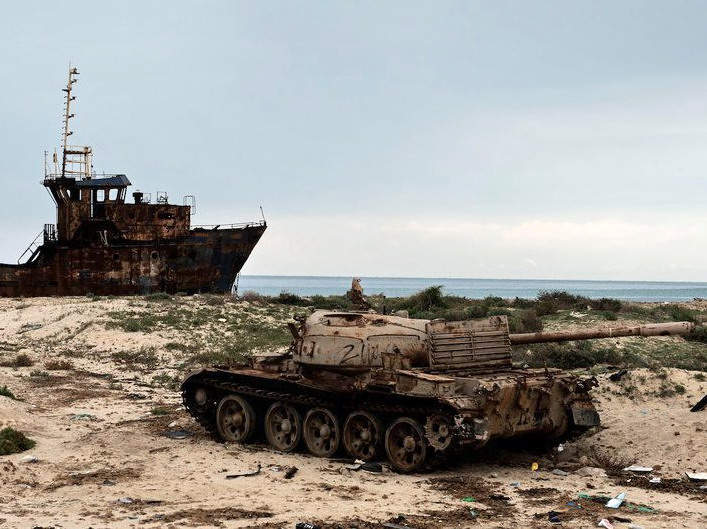
Our Correspondent | Africa Guardian
The Fall of Syria’s Assad Regime: Implications for Libya and Africa
The sudden collapse of Syria’s Assad regime last month dealt a significant blow to Russia and Iran, marking a major geostrategic setback. For Moscow, the fall of Bashar al-Assad, whose regime had long been propped up by Russian military intervention, jeopardized its critical foothold in the eastern Mediterranean.
Russia is now negotiating with Syria’s new authorities to retain its military bases, including the naval base in Tartus and the airbase in Khmeimim. Simultaneously, it is reportedly shifting military resources from Syria to Libya, potentially solidifying its presence in the region. This maneuver threatens to exacerbate Libya’s enduring conflict and raises concerns about Russia’s influence in Africa.
Russia’s Strategic Setback in Syria
Since 2015, Russia has used its military intervention in Syria to project power in the Mediterranean and beyond. Hosting key bases in Tartus, Latakia, and Qamishli, Syria had been a logistical hub supporting Russian operations in Africa, particularly in Libya, Mali, Burkina Faso, and the Central African Republic.
The rapid collapse of the Assad regime represents a political and strategic defeat for Moscow. The Institute for the Study of War described the situation as a crisis for Russia, which now faces challenges in securing its bases under a new Syrian government. These bases had underpinned Russia’s ambitions to threaten NATO’s southern flank and expand its influence in Africa and the Middle East.
Shifting Focus to Libya
To mitigate the fallout from Syria, Russia has intensified its military presence in Libya. Reports indicate that Russian Air Force cargo planes have transported military equipment from Khmeimim Air Base in Syria to Libya’s al-Khadim base near Benghazi. Additional shipments from Russia and Belarus have further reinforced its Libyan operations.
Libya’s eastern leader, General Khalifa Haftar, has long benefited from Russian support in his power struggle with the UN-backed government in Tripoli. However, the bolstering of Russia’s presence risks prolonging the conflict, as Prime Minister Abdul Hamid Dabaiba warned in December.
Russia’s Wider Role in Africa
The collapse of Assad’s regime could have far-reaching implications for Russia’s broader African strategy. Russia has increasingly relied on its Syrian bases to supply military and security support to allies in Mali, Burkina Faso, and Niger, where it backs military regimes accused of human rights abuses.
If Russia were to lose access to Libya, its capacity to sustain operations across Africa could be further undermined. According to analysts, Russia may be overextending its resources, and its deteriorating position in Syria raises doubts about its ability to maintain its influence on the continent.
What This Means for Africa
For Africa as a whole, Russia’s weakened position could reduce its ability to intervene militarily, particularly in the Sahel, where its involvement has failed to curb terrorism or stabilize the region. However, for Libya, the implications are likely negative. Russia’s intensified focus on Libya as a replacement hub for its African operations could entrench its presence and worsen the internal conflict.
As Dabaiba cautioned, Libya risks becoming a battleground for great-power rivalries, further complicating its path toward peace. Moreover, the ongoing foreign military presence in Libya defies peace agreements, underscoring the challenges of resolving the country’s protracted crisis.
In the aftermath of Assad’s downfall, the question remains whether Russia can adapt to its changing geopolitical landscape or whether its overreach will weaken its influence across Africa and beyond. For Libya, however, the immediate outlook appears grim, with Moscow’s pivot likely to deepen divisions and hinder reconciliation efforts.
___
